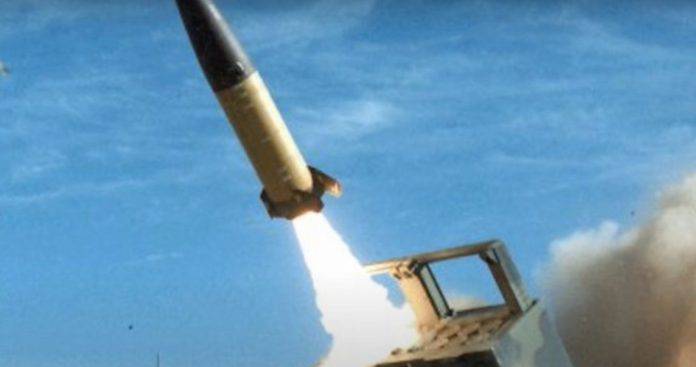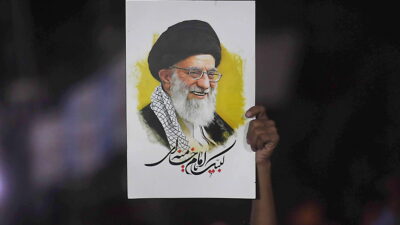Kostas Grivas: How a missile architecture can reverse the Greek disadvantage
20/11/2020
The innovative missile architecture of enormous potential, developed by the US Armed Forces, could only be of theoretical interest to Greece and the Greek-Turkish front, if the philosophy of this architecture, as well as some aspects of it, were not as if they were made for the environment of the Aegean sea.
For those who, therefore, put at the core of the Greek strategy the strengthening of relations with the United States, there is an unprecedented opportunity for Greek-American cooperation in the military sector. This cooperation can start from the fundamental level of military science, regarding the study and the possibilities of application in Greece of the new doctrines of the American Army, such as the Multi-Domain Battle and the Cross-Domain Fires.
Next, it can be considered, in the context of renewed Greek-American relations, that relevant strike systems and their regional information collection, surveillance, reconnaissance, and target acquisition (ISTAR) architectures can create a solid offshore barrier in the Aegean and absolutely and completely deny access to the Black Sea from the Eastern Mediterranean, enclosing Russia.
These capabilities are cooperative with the new aircraft that will be acquired (?) by the Greek Air Force (both with the French Rafale and with the American F-35). In particular, thanks to the very powerful radars and electronic warfare and data fusion systems that these aircraft have, they can be the ears, the eyes, and the coordinating instrument of land-based rocket architectures.
PrSM missiles
Fifth generation fighters, due to the huge cost of acquisition and maintenance, will in fact be few in the Greek arsenal compared to the older generation. This also means difficulty in replenishing them in case of loss. It is therefore not appropriate for them to act as autonomous means, waging their own war.
They need to be integrated into interdisciplinary and cross-sectoral power projection architectures that will achieve multiplier, rather than just cumulative, results. After all, the Aegean environment is a single and indivisible battle area and requires similar approaches, especially in today’s technological-operational environment.
The PrSM missiles, thanks to their huge range for the standards of the Greek-Turkish confrontation area and the ability of self-direction in the terminal phase of attack, can be a kind of post nuclear super weapon for the Greek Armed Forces. This is because they can attack the Turkish Navy surface units, S-400 batteries and other critical targets from a safe distance.
At this point it is useful to emphasize that this is a cheap weapon, in relation to the very expensive platforms we are willing to buy, of which it will be an extension. The PrSM missile could be flanked by enhanced capabilities ATACMS with surface-to-surface attack capabilities at a range of 300 km.
This would be a more economical solution for most of the range of missions that these networks will be called upon to undertake, leaving the numerically fewer PrSM missiles to target missions over longer distances. Improved ATACMS could also be a kind of intermediate solution, as PrSM is currently under development. It is expected to start joining the US arsenal in 2023 and consequently will be available for other countries probably after 2025.
Two questions in Athens and Washington
This raises the question of whether the United States is willing to give Greece these missiles and other related weapons. Under normal circumstances the answer would be “yes”. The PrSM is the successor to the ATACMS and is mounted on the M 270 MLRS multiple rocket launcher. Both systems exist in the Greek arsenal.
So, if Greek-American relations do not deteriorate dramatically, then logically there is no problem for PrSM either, much less for the improved ATACMS. Especially since the Greek-American strategic cooperation is supposed to have been strengthened, while West-Russia relations have also deteriorated and this weapon will make a decisive contribution to cut off Russia militarily from the Eastern Mediterranean.
Under normal circumstances, we would expect that the US would probably want Greece to be equipped with the network’s medium-range missile (2000 km range) because that would serve their strategic interests. For example, such missiles in Souda would allow Greece, that is, NATO, the decisive projection of power throughout the Eastern Mediterranean basin, making it prohibitive for any pro-Western naval force in the region to act.
Are conditions normal?
But are the conditions normal? Do what we believe in strengthening Greek-American relations really apply? In a sense, the PrSM rocket can be a critical test of exactly how the United States treats our country. If they really see Greece as a valuable ally then they would not only consent, but would recommend to us to acquire these weapons to “tie” us further into the Western architecture.
If, however, they refuse to offer us these weapons and other critical abilities, then that means we are living in delusion. To be precise, it means that the American strategy considers it more important not to bother Turkey, even if it means that it is willing to “sacrifice” Greece to keep Turkey in the western camp. If that happens, shouldn’t Greece make its own decisions?
There is, however, a second question: Does Athens want to ask for these weapons from Washington? Because, even if the Americans are willing to sell them to us, the relevant Greek request must be submitted first. The same question therefore arises for the Aegis air defense system, which the author mentioned in an earlier article.
Does the system of power in Greece want to decisively upgrade the Greek combat capabilities and to strengthen the geopolitical position of Greece in the western camp? Or is its primary meaning not to touch on Turkey’s “insecurities”? Probably pressured by other western centers outside the US, which have invested in strengthening their relations with Turkey and the parallel degradation if not complete deconstruction of the Greek geopolitical existence. Shouldn’t these two simple questions be answered at some point?





